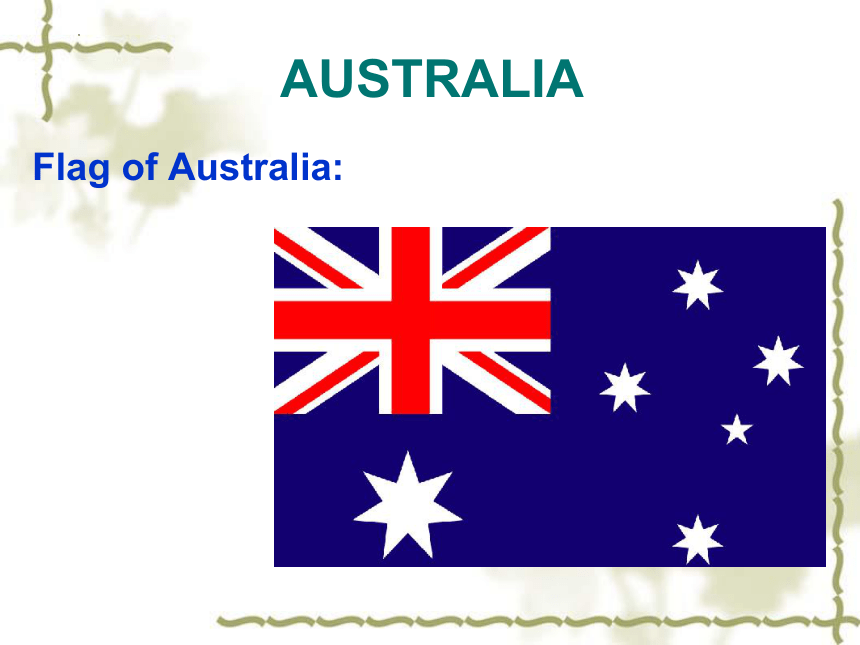(
课件网) AUSTRALIA Flag of Australia: Lesson 4 AN EXCITING TRIP exciting [ik‘saiti ] adj. 令人兴奋的 WORDS AND EXPRESSIONS excited adj.(感到)兴奋的 The _____moment came as expected. She’s very _____about getting the opportunity for the competition. The _____ children were opening their Christmas presents. exciting excited excited Compare below words: interesting; interested disappointing; disappointed 有趣的; 感到有趣的 感到失望的 令人失望的 总结:同时具有-ed和-ing形容词,-ed通常形容人,表示“感到…的”;而-ing的形容词则形容物,表示“使人…的;令人…的” receive /ri`si:v/ v. 接受,收到 同义词: accept v.接受,收到 receive表示单纯“收到”的概念,accept表示“收到并且接受了” I _____an invitation from her and I _____it. received accepted firm [f :m] n.商行,公司 = company adj.稳固的,牢固的,坚定的 We must stand firm in the face of difficulty. different [‘dif r nt] adj.不同的 n. difference make difference 有不同,关系重大,造成区别 例句: It makes no difference whether you come or not. Center n. 中心 There is a museum in the center of the city. abroad adv. 在国外 go abroad travel abroad study abroad live abroad LANGUAGE POINT He is working for a big firm and he has already visited a great number of different places in Australia. 1.work for: 为…工作;在…工作 My father is working for the bank. 2. a great number of 许多 = a great many of +可数名词 a great amount of+不可数名词 He has just bought an Australian car and has gone to Alice Springs, a small town in the centre of Australia. “a small town in the centre of Australia”是Alice Springs的同位语。 *同位语位于名词或代词的后面,说明他们的性质和情况。同位语可以说是一种定语。用于修饰和限定前面的名词或代词。 My brother has never been abroad before, so he is finding this trip very exciting. (1)区别: have(has) been to have(has) gone to *have(has)been用来表示以往的经历,译为“来(到)过”,常与频度副词once, ever等连用。 Have you ever been there They’ve been to Beijing Twice. have(has) gone表示“走了”“到…去了”,一般不与第一、二人称连用。 He has gone to Shanghai.(可能在途中,也可能已到上海,但不在这里) 2. finding this trip very exciting find+宾语+宾语补足语(find+名/代+形容词) I found this film very touching. Do you find this book interesting 英语中有些及物动词,除有一个直接宾语以外,还要有一个宾语补足语,才能使句子的意义完整。 这些常用的及物动词有: make(使) consider(认为) find(发现) have(让,使得) let(让) think(认为)等 What he said make me very angry. We consider/think the answer correct. He has his leg broken. trip 旅行。表示“去…旅行”: take a trip to… I want to take a trip to Germany this summer vacation. 现在完成时 现在完成时 现在完成时由助动词have(has)+过去分词构成。 Has用于第三人称,have用于其他各种人称。 (1)表示从过去某时开始一直延续到现在的动作和状态。 常与表示时间段的状语连用,如for ten minutes, since 1985, all day等,也可以带表示到目前为止的时间状语,如so far, up to now, until now. I have sat for hours in the class ... ...

